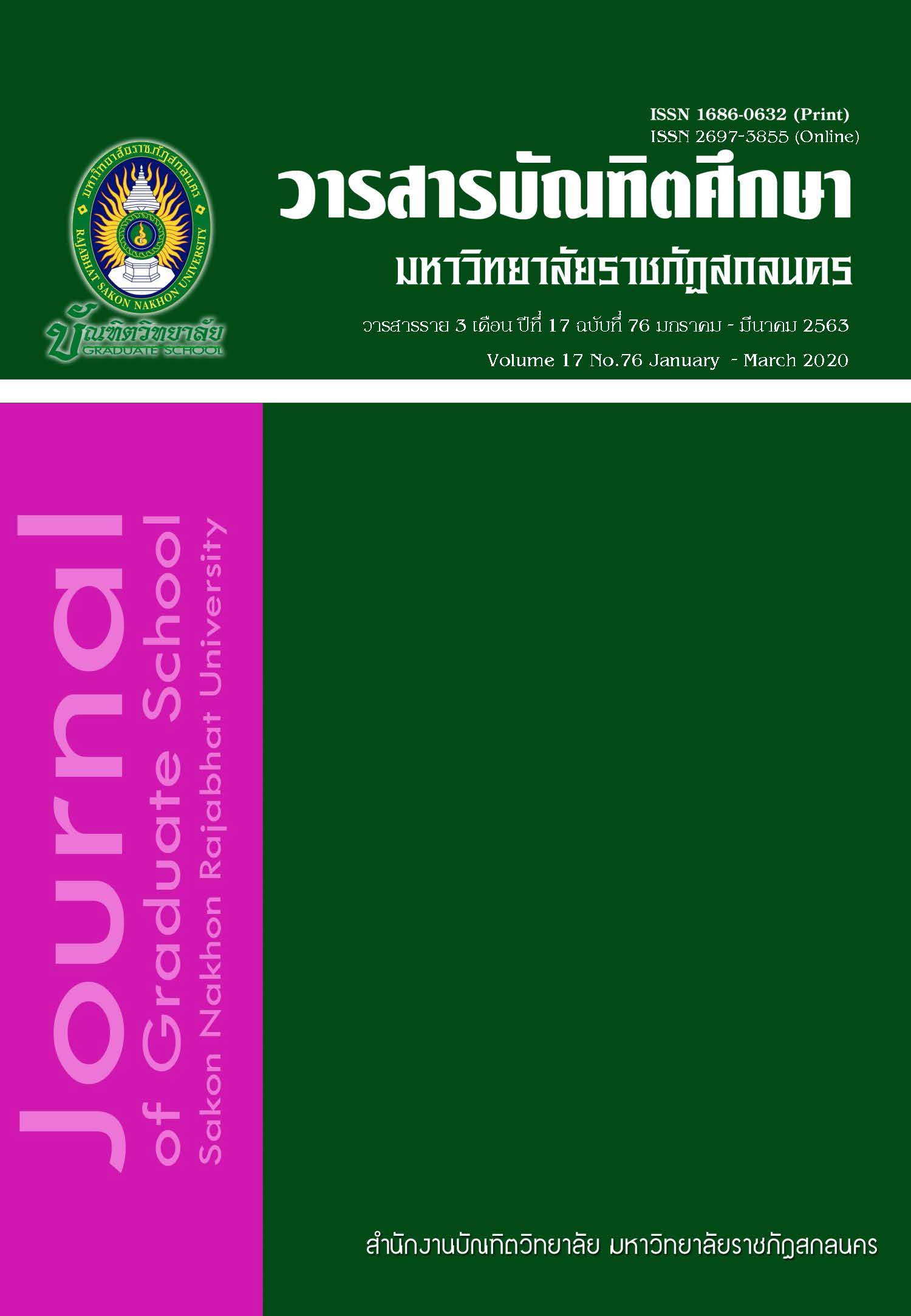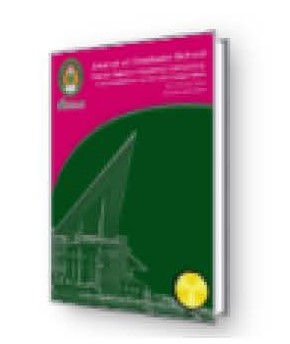การรับรู้กฎหมายว่าด้วยการกระทำความผิดทางคอมพิวเตอร์ของนักศึกษาวิทยาลัยเทคนิคนครพนม
Keywords:
Perception, Law, Information and Communication TechnologyAbstract
The purposes of this research were: 1) to investigate the factors affecting perceptions of Nakhon Phanom Technical College students concerning the computer-related crime laws B.E. 2560, 2) to examine the factors contributing to a violation of using a computer to commit crime of Nakhon Phanom Technical College students, and 3) to establish the guidelines on promoting the perceptions of the computer-related crime laws for Nakhon Phanom Technical College students. The samples were 305 students studying at Nakhon Phanom Technical College, selected through stratified random sampling. The research instrument included a set of questionnaires. A group discussion was also conducted with seven experts. The statistics for data analysis were percentage, mean, frequency, Chi-square and content analysis.
The findings were as follows:
- Factors affecting the perceptions on the computer-related crime laws revealed that: In terms of gender, education level, program, computer experience, and experience of using mobile phone, students perceived the computer-related crime laws differently at the statistical significance level of 0.01 and 0.05. Male had more opportunities to perceive the computer-related crime laws more than female; the higher-vocational level 1 students had more opportunities to perceive than those of other education levels; Commercial program/Business Administration students had more opportunities to perceive on the computer-related crime laws more than those of other programs; the students with computer experience between 6-10 years had more opportunities to perceive on the computer-related crime laws more than those of other computer experience; The students with different experiences of mobile phone usage between 1 to 5 years had opportunities to perceive the computer-related crime laws more than others with different experiences.
- Factors in terms of gender, education level, program, computer experience, and experience of using mobile phone, which led to computer-related criminal behaviors of the students from Nakhon Phanom Technical College, demonstrated different influences on a violation of using a computer to commit crime differently at .0.01 0.05 statistical levels, and
- The guidelines on promoting the perception of the computer-related crime laws for Nakhon Phanom Technical College Students could be categorized into two aspects: 1) Knowledge and understanding on the Computer Crime Act B.E. 2560 comprising providing additional knowledge on the use of social network in daily life, organizing the activities to promote the perception of the computer-related crime laws, and developing videos related to knowledge concerning computer-related crimes for students, and 2) Behaviors concerning computer-related crimes, namely raising awareness on computer-related crimes, developing knowledge and understanding for appropriate behaviors, and using role-play in the classroom.
Downloads
Published
How to Cite
Issue
Section
License
บทความทุกบทความที่ตีพิมพ์ในวารสารบัณฑิตศึกษา มหาวิทยาลัยราชภัฏสกลนคร ถือว่าเป็นลิขสิทธิ์ของบัณฑิตวิทยาลัย มหาวิทยาลัยราชภัฏสกลนคร










